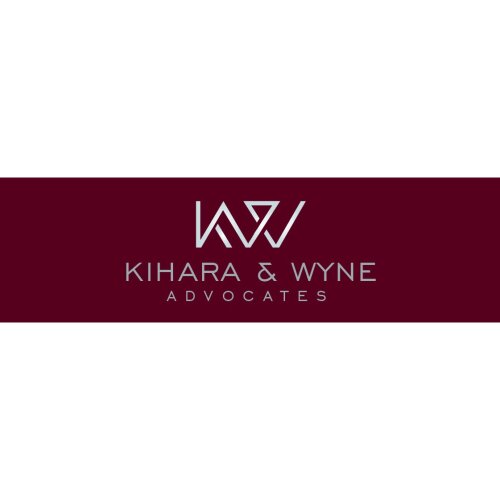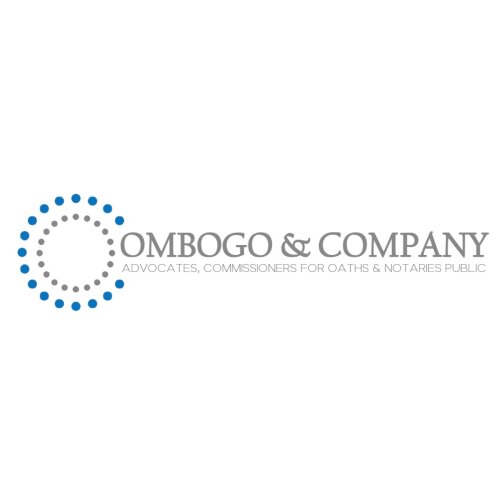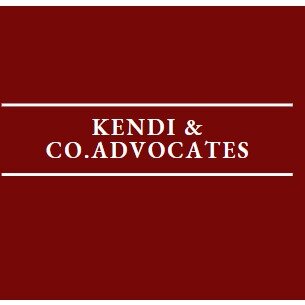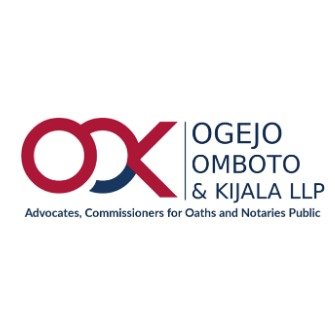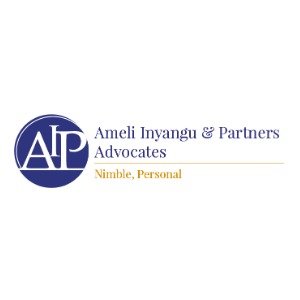Best FDA Law Lawyers in Kenya
Share your needs with us, get contacted by law firms.
Free. Takes 2 min.
Or refine your search by selecting a city:
List of the best lawyers in Kenya
Legal guides written by Adroit Law LLP:
- Kenya Launches Digital Nomad Visa: A Gateway for Remote Workers
- Navigating the Payment System License Maze in Kenya
- Navigating the Complexities of Mining Licenses and Permits in Kenya: A Look into Artisanal and Large-Scale Operations
About FDA Law in Kenya
FDA Law in Kenya refers to the rules, regulations, and legal frameworks governing the approval, production, importation, distribution, marketing, and use of food, drugs, and related products. The term "FDA Law" mirrors regulatory functions similar to the United States Food and Drug Administration, but in Kenya, these are overseen by the Pharmacy and Poisons Board (PPB), the Kenya Bureau of Standards (KEBS), and the Ministry of Health. This area of law ensures that products are safe, effective, and conform to national standards before reaching consumers. FDA Law also encompasses issues of labeling, licensing, recalls, clinical trials, and penalties for non-compliance.
Why You May Need a Lawyer
Working with FDA Law in Kenya can be complex due to the many regulatory requirements and the serious consequences of non-compliance. You may need a lawyer if you are:
- Importing or exporting food, drugs, medical devices, or cosmetics
- Launching a new product in the Kenyan market
- Facing product recalls, seizure, or destruction by regulatory bodies
- Involved in clinical trials or medical research
- Seeking product registration or licensing
- Dealing with advertising, labeling, or packaging compliance issues
- Subject to enforcement actions, investigations, or penalties
- Needing to defend your business from consumer complaints or lawsuits
A lawyer who practices in FDA Law can help you navigate procedures, respond to regulatory bodies, draft compliance documents, and minimize legal risk.
Local Laws Overview
Kenya’s framework for food and drug regulation includes several key laws and regulations:
- Pharmacy and Poisons Act (Cap. 244): Governs the manufacture, importation, and sale of medicines and poisons. Established the Pharmacy and Poisons Board, which is the main regulatory body for medicines.
- Food, Drugs and Chemical Substances Act (Cap. 254): Addresses the safety, standards, and labeling for food, drugs, and chemicals.
- Public Health Act (Cap. 242): Provides for the prevention and suppression of diseases, including food safety requirements.
- Standards Act (Cap. 496): Mandates KEBS to ensure products meet safety and quality standards.
- Clinical Trials Guidelines: Set by the Pharmacy and Poisons Board and the National Commission for Science, Technology and Innovation (NACOSTI).
- Various regulations and guidelines issued by the Ministry of Health.
These laws require businesses and individuals to secure the necessary licenses, maintain specific standards, label products accurately, follow advertising rules, and swiftly report and address product safety concerns.
Frequently Asked Questions
What is the main regulatory body for drugs in Kenya?
The Pharmacy and Poisons Board (PPB) is the main regulatory authority for medicines and medical devices in Kenya.
What must I do to import food or pharmaceuticals into Kenya?
You must obtain relevant permits and licenses from authorities such as the PPB and KEBS, comply with labeling and packaging rules, and ensure products pass inspection and registration requirements.
What are the penalties for non-compliance with FDA Law in Kenya?
Penalties include fines, product seizures, destruction of goods, suspension of business licenses, and possible imprisonment depending on the offense’s severity.
Are clinical trials regulated in Kenya?
Yes. Clinical trials require approval from the PPB and the National Commission for Science, Technology and Innovation (NACOSTI). Ethical approval from a recognized Ethics Review Committee is also necessary.
Can I advertise my food or drug product freely in Kenya?
Advertising is regulated to prevent false or misleading claims. You need prior approval for drug advertisements, and all must meet requirements set by the PPB and other authorities.
What happens during a product recall?
A product recall involves removing and correcting products that pose risks to public health or do not comply with standards. The PPB or KEBS will direct the process and monitor compliance.
Who approves medical devices in Kenya?
The Pharmacy and Poisons Board handles the registration and regulation of medical devices.
How long does product registration take?
The duration varies depending on the product’s complexity and regulatory checks. For medicines, it can take several months to over a year.
How do I report a suspected unsafe product?
You can report to the PPB, KEBS, or the Ministry of Health. They have online and physical reporting mechanisms for public complaints.
Do I need a lawyer for FDA Law matters in Kenya?
While not mandatory, legal guidance is highly recommended due to the complex nature of the laws and potential consequences of mistakes.
Additional Resources
Here are some helpful resources and organizations for navigating FDA Law in Kenya:
- Pharmacy and Poisons Board (PPB): Kenya’s authority for medicines and medical devices.
- Kenya Bureau of Standards (KEBS): Regulates product standards, approvals, and safety.
- Ministry of Health: Issues guidelines and policies for health-related products.
- National Commission for Science, Technology and Innovation (NACOSTI): Regulates clinical trials and research.
- Consumers Federation of Kenya (COFEK): Protects consumer rights in health and product safety.
- Law Society of Kenya: Provides a directory of qualified lawyers experienced in regulatory matters.
Next Steps
If you need assistance with FDA Law in Kenya, consider the following steps:
- Clearly define your legal question or challenge related to food, drugs, or regulated products.
- Gather all relevant documents, such as licenses, registrations, correspondences, and notices from authorities.
- Contact a lawyer experienced in FDA Law or regulatory compliance in Kenya. The Law Society of Kenya can help you find qualified professionals.
- Consult official resources such as PPB, KEBS, and the Ministry of Health for up-to-date regulations and requirements.
- Consider ongoing legal support to help your business or project remain compliant and address any future issues quickly.
Being proactive with regulatory compliance and seeking early legal advice helps you avoid costly mistakes and keeps your business operating smoothly.
Lawzana helps you find the best lawyers and law firms in Kenya through a curated and pre-screened list of qualified legal professionals. Our platform offers rankings and detailed profiles of attorneys and law firms, allowing you to compare based on practice areas, including FDA Law, experience, and client feedback.
Each profile includes a description of the firm's areas of practice, client reviews, team members and partners, year of establishment, spoken languages, office locations, contact information, social media presence, and any published articles or resources. Most firms on our platform speak English and are experienced in both local and international legal matters.
Get a quote from top-rated law firms in Kenya — quickly, securely, and without unnecessary hassle.
Disclaimer:
The information provided on this page is for general informational purposes only and does not constitute legal advice. While we strive to ensure the accuracy and relevance of the content, legal information may change over time, and interpretations of the law can vary. You should always consult with a qualified legal professional for advice specific to your situation.
We disclaim all liability for actions taken or not taken based on the content of this page. If you believe any information is incorrect or outdated, please contact us, and we will review and update it where appropriate.
Browse fda law law firms by city in Kenya
Refine your search by selecting a city.








